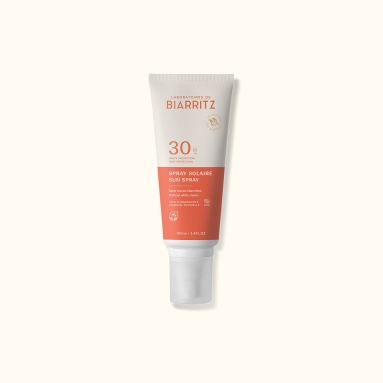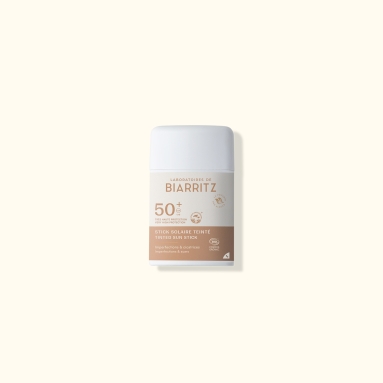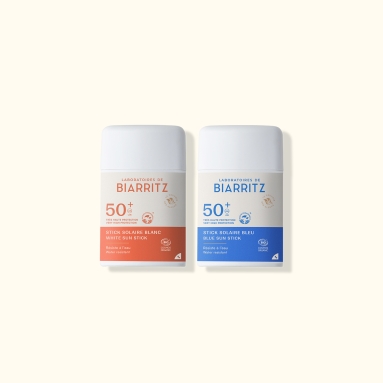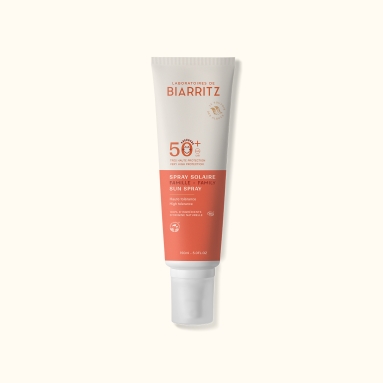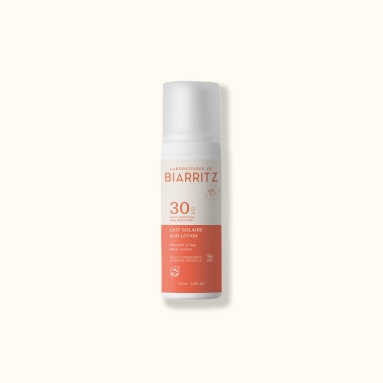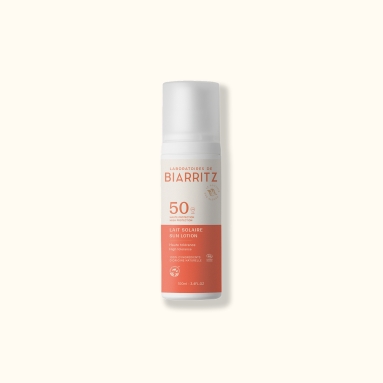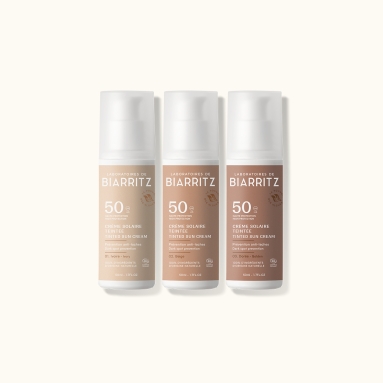We cannot stress this enough: it is essential to protect your skin from UV rays.
Without protection, UV rays are harmful in both the short and long-term.
1/ Shielding Your Skin from UV Rays: An Essential Move
Without protection, UV rays are harmful in both the short and long term:
• UVB rays do not penetrate deeply into the skin, but they are very energetic. This is how they cause “sunburns”, which are epidermal burns with associated erythema and inflammation.
It is particularly important to protect yourself during childhood and adolescence, as many studies have demonstrated a link between the number of sunburns received during this period of life, and the risk of developing skin cancer in later years.
• UVA rays are less energetic, but they penetrate more deeply into the skin. They go through the epidermis to the dermis. UVA rays cause harm by stimulating the production of free radicals. These aggressive and unstable molecules degrade collagen and elastin fibers in particular, which in turn accelerates skin aging.
For the sake of your health, you must protect your skin from UV rays, either by avoiding sun exposure, or if you want to enjoy the sun in complete safety, it is essential to apply a sunscreen that is suitable for both your skin type and the weather conditions.

2/ Choosing Certified Organic Sunscreens to Respect Your Health and the Environment
Currently, there are only two types of sunscreens: those made with natural-origin, mineral screens, and those made with synthetic, chemical filters. Organic Certification formally prohibits the use of chemical filters in Organic suncare products. Only mineral screens are permitted.
Organic certification requires a minimum of 95% natural-origin ingredients and also guarantees the complete absence of controversial, petrochemical-origin ingredients, which are harmful to health and to marine ecosystems.
Chemical filters are not active until 20 to 30 minutes after application, and they can cause allergic reactions. Some are also suspected of being endocrine disruptors, and they have an environmental impact.
On the contrary, mineral screens are 100% natural in origin. Upon application, they protect immediately by forming a physical barrier on the surface of the skin that reflects the UV rays. They also have a high tolerance.
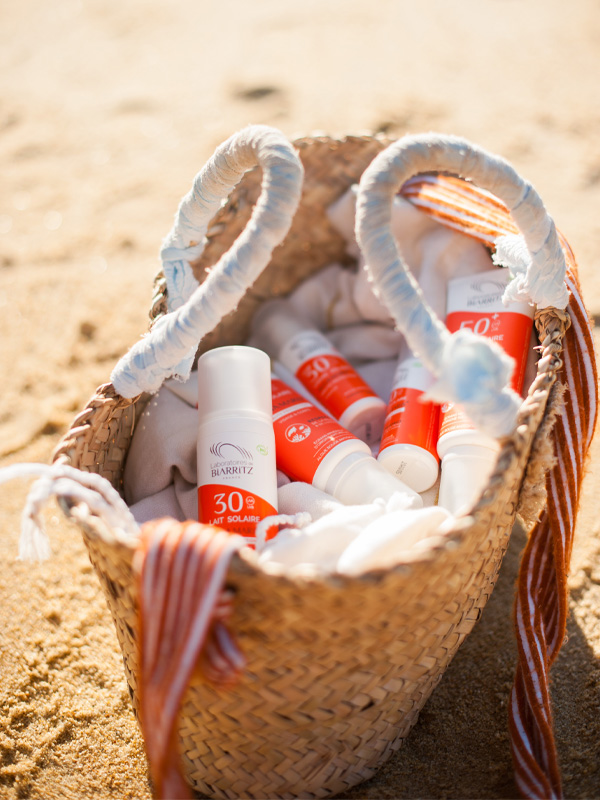
3/ Laboratoires de Biarritz Sunscreens: Scientific Proof of Their Respect For the Skin and the Ocean
At Laboratoires de Biarritz, when we develop our formulas, our R&D team consciously makes choices that ensure that we offer you suncare products with optimal tolerance, enabling you to keep your skin healthy and beautiful, all whilst having a minimal impact on the environment. However, we feel it is important to provide you with scientific proof of our commitment.
So, we can confirm and prove that:
– Our sunscreens are not ecotoxic: ecotoxicity tests carried out by an independent, specialized laboratory show that our sunscreens are completely non-toxic to marine life. The formulas tested are those that are the most concentrated in mineral screens, and the conditions of the study are maximized for an optimal verification of the absence of environmental impact. In addition, the organisms selected for the tests – algae, coral, and microscopic crustaceans – allow us to have a clear vision of any potential ecotoxicity on global marine fauna.
– Our sunscreens are completely safe: a study (on Franz cells, according to the OCDE 428 guidelines) has revealed that mineral screens do not pass through the skin. They stay on the surface and therefore do not present any risk of presence in the body (study conducted

4/ Health Claims and Regulations
It should be noted that the protection factors displayed on sunscreen product packaging are subject to strict regulation on behalf of the EU authorities, and these regulations are the same for mineral screens and chemical filters alike.
Therefore, to be able to display UVB and UVA logos alongside SPF on packaging, there must be proof for these claims.
UVB protection is measured in terms of SPF. Regulation requires that UVA protection be equal to at least a third of the UVB protection.
As a result, levels of protection for marketed sunscreen products must have been verified by specialized and independent laboratories to levels equal or superior to those displayed on the packaging.
With regard to the Certified Organic sunscreens, the restrictions are even tighter. In fact, they must meet two standards: those of European Cosmetics Regulations and those of the Organic Certification Body (Ecocert/Cosmos). These bodies verify the quality of the raw materials, and they also verify that the manufacturing processes produce a minimal ecological footprint without using any pollutants. Within this highly regulated framework, Certified Organic sunscreens must also provide evidence for every claim they display.
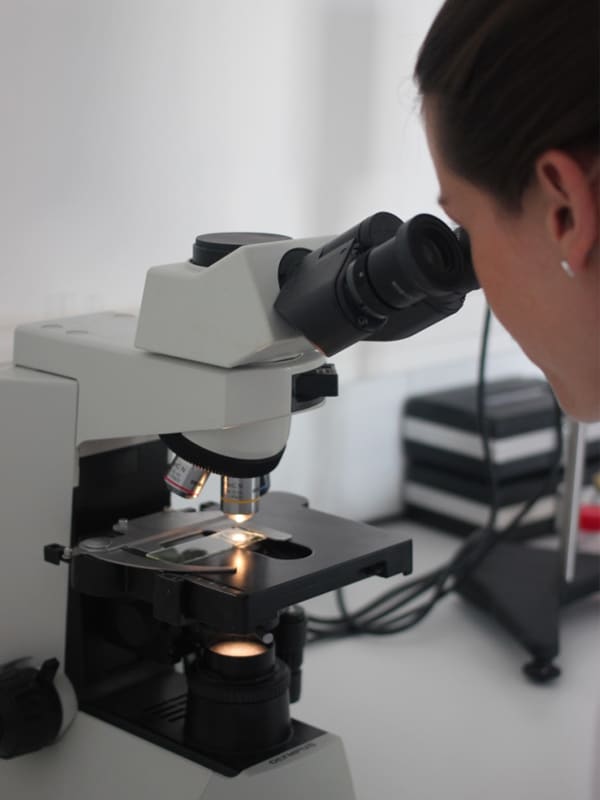
Complete your routine with our selection of products.
La crème de Biarritz: all the benefits of the ocean in one container
Ever dream of a single skincare product that provides all the benefits of the ocean's magic? Well, ...
Replenishing Face Serum: A Hyaluronic Acid Must-Have
Skincare using hyaluronic acid is increasingly sought after. But what is it exactly, and what sets o...
Our top tips for lifelong firm and healthy skin
As time goes by, your skin changes... Skin aging is a natural process that we can’t stop, but, with ...
Hydration, protection and radiance: our team’s favorite skincare picks for the new season!
As the seasons turn and your memories of a well-deserved vacation begin to fade, don't despair! Our ...


